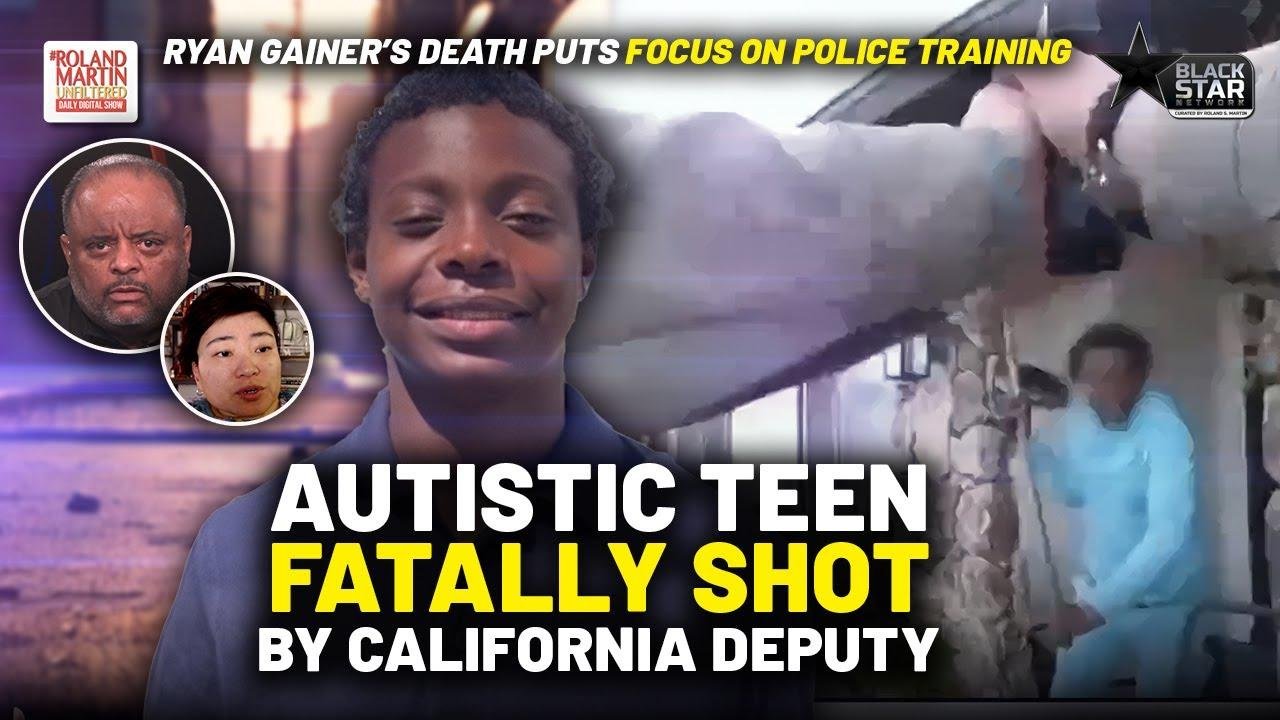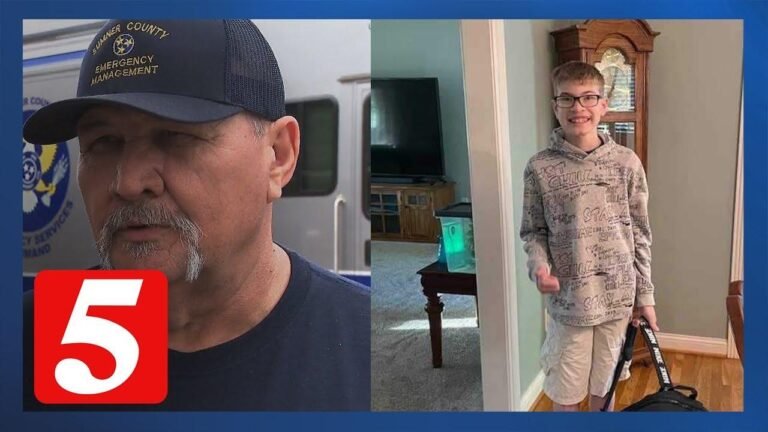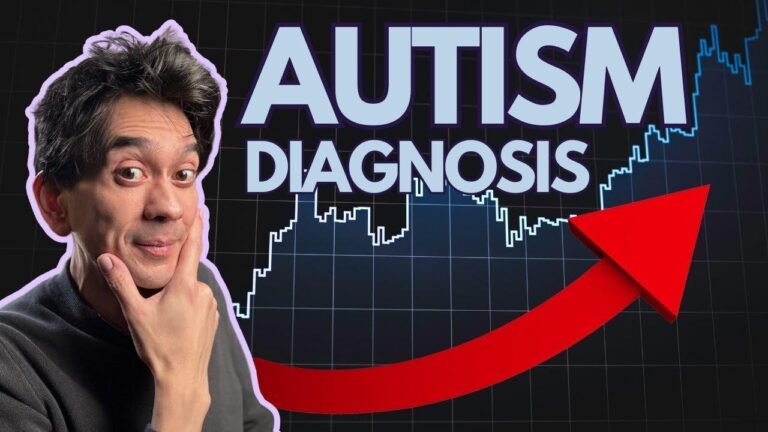California Deputies Kill Black Autistic Teen: Why Did You Shoot My Baby?” – Roland Martin
Police need to be trained to handle mental health crises without using deadly force. Funding for mental health services needs to be increased to prevent these situations. Sending officers to handle mental health crises is not effective. We need to prioritize mental health professionals over police in these situations. It’s time to invest in real solutions before crises occur. 🚨👮♂️🛑🧠
📰 Overview and Analysis
From the disturbing incident involving the fatal shooting of a black autistic teenager in California, to the lack of proper mental health crisis management, Roland Martin delves into the complexities surrounding this tragic event. In an intensive conversation, Martin brings to light crucial aspects that shed light on the need for systemic change.
🕵️♂️ Law Enforcement Response
The California police authorities were summoned to the scene when a 15-year-old, identified as Ryan, was allegedly assaulting family members and causing damage to property.
"This situation is all too familiar, where police interactions with individuals, particularly from black and minority communities, escalate to tragic outcomes," says Martin.
🗣️ Mental Health Crisis in Law Enforcement
Martin emphasizes the critical significance of proper training and decision-making for law enforcement officers facing individuals with mental health challenges.
- He says, "There is an urgent need to rethink how police departments respond to mental health crisis calls, with a shift towards prioritizing the deployment of mental health experts."
🏥 Mental Health Resources and Support
The discussion also draws attention to the underfunding and lack of resources for individuals with mental health disabilities, leading to a concerning trend of discrimination and neglect in accessing care and support.
- "The real problem stems from underfunded mental health services, leaving individuals with disabilities without the necessary support," notes Martin.
🔍 Detailed Analysis and Media Coverage
In the broader context, Martin thoroughly examines the circumstances surrounding the tragic shooting, including an analysis of law enforcement’s response and the portrayal of the events by various media outlets.
📊 The Need for Dedicated Mental Health Services
The absence of adequate mental health response mechanisms is highlighted, with a focus on the necessity for long-term solutions and increased funding for mental health support systems.
- "We must prioritize creating parity in Medicaid reimbursement rates and invest in long-term mental health care solutions," stresses Martin.
📈 Ongoing Initiatives and Policy Reforms
The conversation takes a proactive stance, underscoring the urgency of redirecting budget resources towards establishing mental health response teams, as exemplified by initiatives in large cities across the U.S.
💡 A Shift Towards Mental Health-Centered Care
Martin emphasizes the importance of diverting resources from law enforcement to dedicated mental health response systems and crisis management units.
- "It’s crucial for communities to allocate funding for mental health professionals to respond to crisis calls, taking a critical step towards de-escalating situations effectively," advocates Martin.
🚔 Needed Reforms in Law Enforcement
The pressing need for reforms within law enforcement agencies is further illustrated, particularly in terms of enabling police dispatchers to relay crucial information about individuals experiencing mental health crises to officers on the scene.
📚 Importance of Comprehensive Mental Health Support
Martin reinforces the significance of comprehensive mental health services, including case management and support systems, to prevent individuals from being pushed towards dangerous crisis points.
- "We cannot overlook the essential benefits of case management and support services in curbing mental health crises before they reach critical stages," underscores Martin.
⚖️ Potential Legal and Systemic Implications
In the context of the fatal incident, Martin addresses the legal and systemic implications of law enforcement’s use of deadly force and the need for increased focus on mental health accomodations and de-escalation measures.
🕊️ Empathy-Centered Crisis Response
The conversation advocates for a profound shift in law enforcement’s crisis response, placing a greater emphasis on empathy, situational assessments, and responses tailored to individuals experiencing mental health challenges.
- "We need to prioritize crisis response that centers on empathy, understanding, and effective de-escalation tactics to prevent tragic outcomes," asserts Martin.
🔗 Inclusive and Collaborative Solutions
The constructive dialogue calls for a united effort towards fundamental societal reforms and collaborative endeavors to address issues relating to mental health response and support systems.
- "It’s crucial to foster collaborative efforts and inclusive solutions that prioritize enhancing mental health support across society," concludes Martin.
📌 Key Takeaways
The case of the black autistic teenager’s tragic shooting in California serves as a poignant reminder of the urgent need for comprehensive mental health reforms within law enforcement and society at large.
📋 Quick Recap: Key Takeaways from the Conversation
| Main Focus | Highlighted Points |
|---|---|
| Law Enforcement Response | Calls for proper training and decision-making |
| Mental Health Crisis | Urgent need for rethinking crisis response strategies |
| Mental Health Resources | Emphasis on underfunded support and discrimination |
| Detailed Analysis | Calls for broad media coverage and in-depth examination |
| Ongoing Initiatives | Importance of redirecting resources for mental health |
| Needed Reforms | Urgent call for reforms and reallocation of resources |
| Potential Legal Implications | Addressing systemic implications and empathy-centered strategies |
| Inclusive Solutions | Advocacy for collaborative and inclusive societal efforts |
🗨️ Voice Your Thoughts: FAQs
In this section, we address frequently asked questions highlighting the profound impact and implications of effective mental health response and support.
🤔 Q: What are the key societal reforms needed to enhance mental health support?
- A: Society needs to invest in long-term mental health care solutions, prioritize funding for mental health professionals, and establish comprehensive support systems inclusive of case management.
🛡️ Q: How can law enforcement effectively address mental health crises?
- A: A shift towards a mental health-centered response, providing officers with comprehensive training in empathy, de-escalation, and situational assessment, alongside the deployment of dedicated mental health professionals.
🚨 For real-time updates and in-depth discussions on this crucial topic, tune in to Roland Martin Unfiltered for comprehensive insights and thought-provoking conversations.







